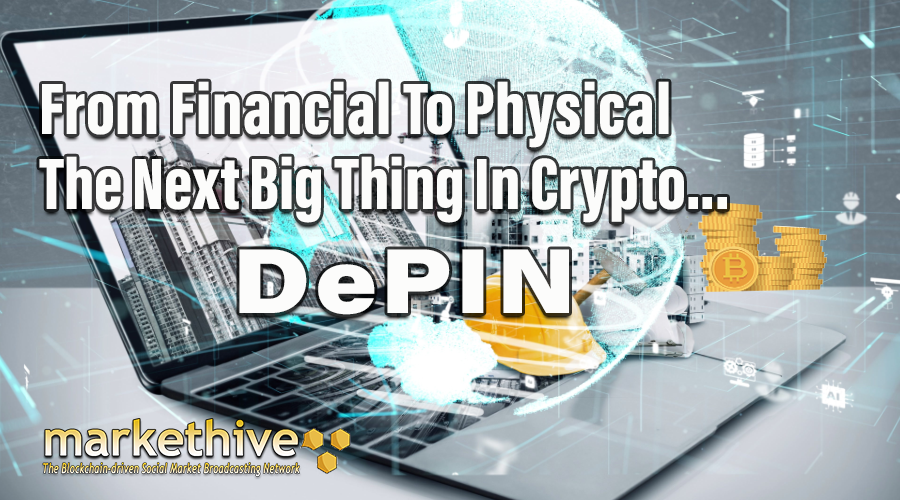


Image Source: Pixabay
Cardano’s Voltaire era nears with June hard fork milestone
Chang will be the first hard fork in the final era of Cardano’s roadmap, introducing community-run governance and on-chain community consensus.
Charles Hoskinson, creator of the open-sourced blockchain platform Cardano, anticipates a major event in June in the Cardano ecosystem.
On June 9, Hoskinson announced on X that Cardano’s upcoming Chang fork is approaching quickly and that Cardano Node will likely reach version 9.0 this month.
That means the Cardano blockchain is ready for the hard fork and is now waiting for 70% of stake pool operators (SPO) to install the new node.
“Then, a hard fork can occur, pushing Cardano into the Age of Voltaire,” Hoskinson noted, referring to the latest phase in Cardano’s development stages.
Voltaire is the final era of Cardano’s roadmap: Read More
Solana cracks down on validator sandwich attacks
Sandwiching occurs by placing one order before the transaction and another immediately after, which ensures that retail always gets the worst possible price.
The Solana Foundation has removed a group of validator operators from its delegation program due to their involvement in sandwich attacks on traders.
Validators identified via memepool:
In a sandwich attack, a malicious trader searches the network of their choice, such as Ethereum, for a pending transaction. Sandwiching occurs by placing one order before the transaction and another immediately after.
The attacker will position the first pending transaction between a front-run and a back-run, both occurring simultaneously, to manipulate the asset’s price and profit from the difference.
This attack guarantees that retail investors always receive the worst possible price, while the attacker extracts all the profit for themselves. Read More
How to build a botless Web3 community with gamified quests and airdrop
Quest platform with over 12 million verified on-chain users launches community hub for projects to build botless on-chain communities and host airdrops.
Addressing challenges in airdrop campaigns, Intract is building an ecosystem to assist projects in accomplishing successful airdrop campaigns.
Airdrops serve as a functional marketing strategy when launching or promoting a new project in the Web3 space. They involve distributing free tokens to users, typically to encourage engagement and raise awareness about a project. However, the current landscape of airdrops faces several challenges.
One major issue is the undue focus on promoted social contributions over organic actions, leading to less genuine community engagement. Users often find it cumbersome to verify on-chain quests, adding friction to their participation. Read More
Optimism reaches ‘Stage 1’ decentralization, implementing fault proofs
The team has implemented fault proofs on Optimism mainnet, and users can now independently initiate withdrawals “without involvement from any trusted third parties.”
Ethereum layer-2 Optimism has implemented fault proofs into its smart contracts, according to its development team, OP Labs. According to the team, Optimism has now reached “Stage 1” of decentralization, referring to a list of milestones articulated by Ethereum co-founder Vitalik Buterin.
At least four other OP Stack networks will implement the fault proofs “soon,” including Base, Metal, Mode, and Zora.
On Optimism, users can now initiate withdrawals of Ether and ERC-20 tokens “without involvement from any trusted third parties,” OP Labs said in a post. In addition, if the team’s sequencer attempts to process invalid withdrawals, they can be “challenged and removed” by any user who submits a fault-proof showing that the withdrawal is invalid. Read More
From Financial To Physical. The Next Big Thing In Crypto - DePIN

Recently, there has been significant interest in decentralized physical infrastructure, also known as DePIN, within the crypto space. People are curious about the potential of this niche and which specific projects within it are worth noting. The latest detailed study, titled State of DePIN 2023 by Messari, aims to provide insights into these questions. This summary will highlight key findings from the report and discuss their potential impact on the cryptocurrency market.
What Is DePIN?
The report commences with a concise delineation of DePIN, an acronym for decentralized physical infrastructure. It encompasses a cluster of ventures that employ cryptocurrency-based incentives to foster a range of physical infrastructure. These initiatives span from decentralized Wi-Fi systems, decentralized computing clouds, decentralized cloud storage solutions, and decentralized mobile networks to other similar endeavours. A salient feature that sets most DePIN projects apart, in addition to their crypto-based incentives, is the accessibility for individuals to contribute, provided they possess the requisite hardware. Read More
Chainlink’s CCIP protocol and Automation now live on Gnosis
Gnosis developers can now outsource their heavy computing to the oracle network while reducing gas fees by up to 90%, spokespeople said.
Chainlink's CCIP interoperability protocol and Automation services are now live on the Gnosis network, the two entities announced on June 12.
Gnosis users can now use Chainlink for cloud computing functions and offload heavy computing tasks to the Chainlink network while reducing gas fees by up to 90%. More importantly, Chainlink’s CCIP protocol will allow Gnosis users to send messages, interact, and swap value across blockchains.
Philippe Schommers, head of infrastructure at Gnosis, expressed enthusiasm about deploying Chainlink’s CCIP protocol and Automation services on Gnosis:
“Empowering Gnosis devs with cross-chain connectivity and verifiable compute enables them to develop powerful applications that solve real-world use cases. Ultimately, by providing mission-critical infrastructure, Gnosis and Chainlink are set to scale the Web3 ecosystem to mass adoption.” Read More
Crypto Insider Says Web3 Social Media Platform Farcaster May Launch a Token in the Future: Report
Farcaster, the blockchain-based challenger of social media platform X, reportedly may introduce its own token.
The Ethereum (ETH)-based decentralized social network Farcaster allows users to create profiles, make posts called “casts” and follow others.
The platform also gives users the ability to store their data on-chain and showcase their non-fungible tokens (NFTs).
According to Fortune, Farcaster raised $150 million in funding last month with a $1 billion valuation despite a daily average user base of just 50,000. The investment is by far the largest in web3 social media to date.
Citing a source who wished to remain anonymous, Fortune says investor interest in Farcaster may be driven by the prospect that the crypto project may launch a token in the future. Read More
Circle announces Solana programmable wallets, gas station
Circle is rolling out support for the Solana blockchain across its Web3 services, enabling features such as programmable wallets and gas stations.
The integration will take place in two phases. According to an announcement on June 12, the first phase will focus on programmable wallets — allowing developers to automatically manage assets based on predefined rules — and sponsored transaction fees via its gas station feature.
The second stage will include support for non-fungible tokens (NFTs) and program interactions through Smart Contract Platform, said Circle. The move will align Solana with other blockchains already supported by Circle’s Web3 services, such as Ethereum, Polygon and Avalanche.
Programmable Wallets can be configured to interact with smart contracts automatically. This means that tasks typically requiring manual execution, such as executing transactions when certain conditions are met, can be automated. Read More
Solana Labs debuts blockchain customer loyalty platform Bond
Solana Labs, the company behind layer-1 blockchain Solana, could soon be bringing many more non-crypto native brands and their customers into Web3 without many of them even knowing.
As of June 12, the firm has officially launched Bond, its new blockchain-based customer engagement platform aimed at helping brands “drive long-term loyalty.”
Solana Labs says the new platform will address “critical limitations” in today’s loyalty programs, namely losing connection with the end customer if a product is ever resold or gifted.
While Bond is blockchain-based, it’s unlike some of the firm’s other recent launches such as Solana Mobile — it doesn’t put crypto front and center.
Solana Labs described it as “a seamless user experience where customers won’t even realize it’s Web3.” Solana promises brands won’t be required to have any blockchain experience either since the service will be accessible through a single application programming interface, it said. Read More
Disclaimer: These articles are provided for informational purposes only. They are not offered or intended to be used as legal, tax, investment, financial, or any other advice.